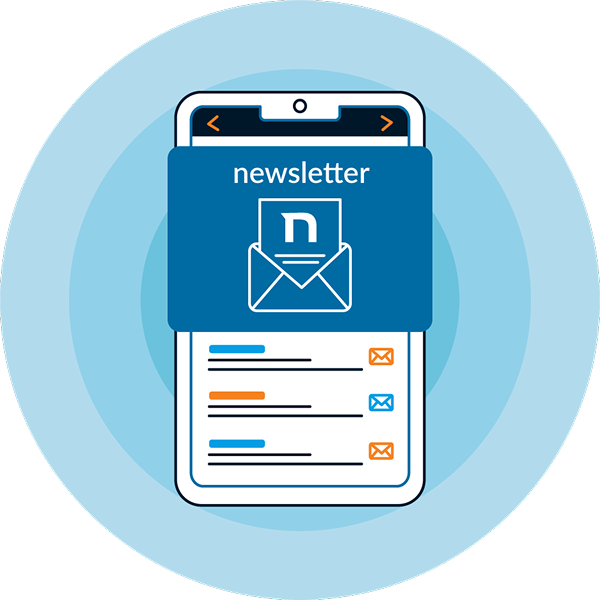When talking about technology and contract management, it's easy to feel a little lost among so many acronyms and technical terms.
But it doesn’t need to be like this.
You can master all those terms once and for all, understanding today some of the main concepts of the universe of contract management softwares.
API
API (Application Programming Interface) is a set of protocols that connects two different software, enabling the exchange of information between them. You can, for example, use APIs to connect contract management software to team management systems to better organize powers of attorney.
Electronic signature
Electronic signature is a broad concept that brings together signatures that receive validation by electronic means, such as passwords, biometrics, tokens and others. In many countries around the world, electronic signatures are legally binding and are widely used by companies and individuals to digitally sign contracts.
Document Automation
Document automation is the process of elaborating files with little or no human intervention. For this, it is necessary to identify the variables, which are all the information that can change depending on the specific case. Once this data is filled in by the machine or by the user, the system generates the document automatically.
Read more at: Document automation: understand what it is, how it works and what are the advantages
Workflow automation
Workflows automation means using technology to reduce or eliminate the degree of human intervention in the sequence of steps necessary to perform a certain activity in the company. In practice, this adds agility and reduces the chance of error in the transition between tasks.
Contract Lifecycle Management (CLM)
Contract Lifecycle Management (CLM), is the set of processes that optimize the contracting flow within companies, from elaboration to signature and execution. CLM also recommends generating intelligence from data extracted from documents and all of its lifecycle.
Read more at: CLM: what it is and how technology can benefit your company
Contract management
Contract management is a concept that can be used in two senses: a general one, designating all stages of a contract’s life cycle, and a specific one, directed only at the stage of fulfilling obligations. See more below:
General: Contract management, in general, is the set of activities carried out throughout the contract’s lifecycle, including: soliciting, drafting, negotiating, approving, signing, storing, executing, and generating intelligence. Several areas of the company can be involved in these activities to ensure agility, assertiveness, compliance and security.
Specific: Contract management can also be understood as the stage of monitoring compliance with obligations, including the deadlines, price and scope of deliveries. It also verifies the quality of the service or product via SLAs, including the need to execute any penalty or offer any benefit linked to the supplier's performance.
Read more about contract management at: Contract Management in Sales: are you creating problems or solutions?
Electronic Document Management System (EDMS)
Electronic Document Management System (EDMS) is the use of technology to store, organize, and control access to information contained in digital documents. More than storing files in the cloud, the EDMS allows the quick location of documents and promotes the security of the information contained therein.
Systems integration
Systems integration is the connection between two or more software to ensure interoperability based on data sharing. For example, it is possible to integrate a CLM software into the company's financial system, ensuring that information from the first regarding payments is passed on to the second.
READ MORE: netLex connect: all the power of integrations at the service of your company
Key Performance Indicators (KPI)
Key Performance Indicators (KPI) are quantitative parameters for project evaluation in comparison to a company's goals. To create them, it is necessary to define what will be evaluated, and to elaborate specific, measurable, achievable, relevant and time-bound goals.
Robotic Process Automation (RPA)
Robotic Process Automation (RPA) is the use of software to automate processes. In practice, for example, RPA can automate communication between systems to share information, or even perform tasks that would previously be conducted by humans even within the system.
Service Level Agreement (SLA)
Service Level Agreement (SLA) is a contractual clause that establishes parameters to evaluate what is being delivered, and may also create benefits or penalties for each scenario. These parameters can be quantitative, such as service time, or qualitative, such as the degree of user satisfaction.
Read more at: How to build good clauses for managing supplier contracts
Software as a Service (SaaS)
Software as a Service (SaaS) is a model for using software in the cloud, which can be entered remotely by customers with internet access. This proposal is the opposite of the traditional “Software as a product” approach, in which the customer installed and updated the software on their personal or corporate servers.
CLM Software
CLM software, or Contract Lifecycle Management Software, is a system that centralizes and automates contract management, articulating areas within a company, as well as customers and suppliers throughout the different stages of a contract’s lifecycle such as requesting, preparation, negotiation, approval, signing, storing, executing, and generating intelligence.
Are you thinking about the cost of a CLM software for your company? Read more at: The cost of (not) deciding: calculating the ROI of contract management software
Workflows
Workflow is the sequence of steps necessary to perform a certain activity within companies. These steps can be simultaneous or successive, and may involve more than one person in charge or area in the company. By organizing and standardizing processes, workflows bring more efficiency and traceability for the organization.
Meet netLex
All the concepts you learned today are part of the set of features that netLex can deliver to your company.
Based on the Saas model, netLex is a contract management software that automates your company's documents and workflows. With netLex, you can bring all the benefits of EDMS, RPA and more to your agreements’ lifecycle.
When signing, rely on electronic signature providers, natively integrated into the platform. Moreover, when it is necessary to manage the obligations and deadlines of your agreements, you can count on dashboards and automated data extraction to monitor your KPIs and SLAs.
Do you want to see in practice how netLex could work for your company? Schedule a free demo with our experts now.






